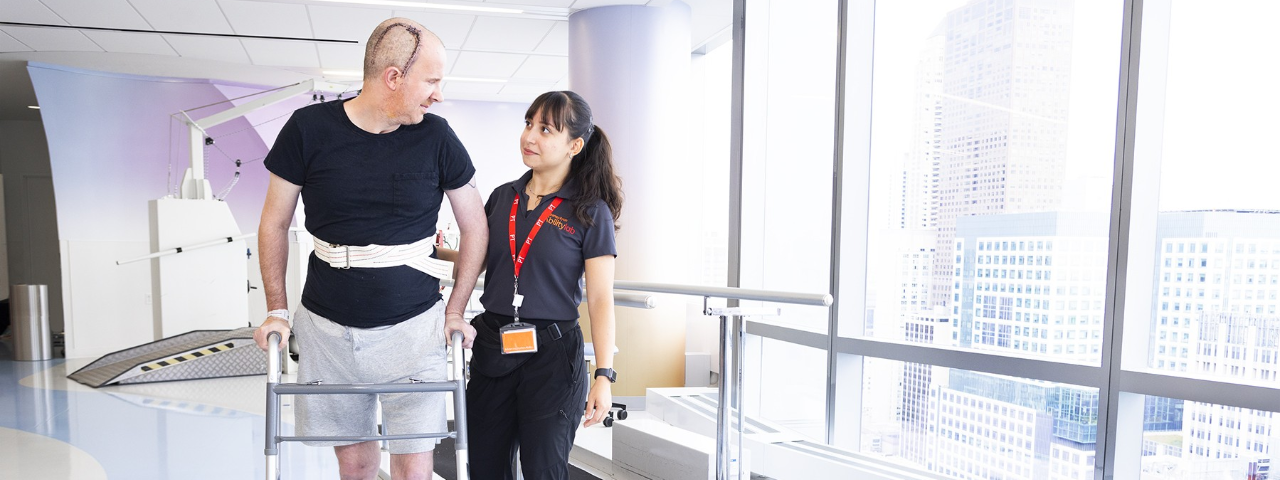Body
Top-ranked Shirley Ryan AbilityLab is getting ready to launch a quality assessment tool that measures patients’ rehabilitation and recovery progress to guide doctors and insurers.
The hospital has spent $6 million and eight years developing and refining what it calls the Ability Quotient. AbilityLab clinicians are already using the tool, and they’ll soon partner with at least five other organizations for beta testing, said CEO Dr. Joanne Smith.
"One of the problems in health care is that it lags behind other industries in terms of using data to define quality and value,” said Lyndean Brick, president and CEO of Advis Group, a health care consulting firm in Chicago.
The tools available for rehabilitation today don’t differentiate by impairment group or individual medical conditions, Brick said. Enabling rehab teams "to work together on goals that are specifically benchmarked to individual patients . . . changes the whole landscape."
Here’s how Ability Quotient works: Clinicians test patients in areas like cognition, balance and endurance. Algorithms for different patient populations highlight the measures that are most statistically important—from day one through discharge. The data tells clinicians where to focus if patients are falling behind in certain areas. For example, maybe balance is not keeping pace with a patient’s ability to dress himself or herself.
The more data that’s collected for each patient population, the better clinicians will be at setting benchmarks and predicting patient outcomes, Smith said. Additionally, insurance companies could use the tool to reward quality care with higher reimbursement rates.
Body
“Insurance providers are paying us all in the market now as if there’s no difference—and there is a difference,” Smith said. “Without a measurable, viable outcome system, all you have is cost. . . .Those who don’t do well by way of patient outcomes should either get better or leave the market.”
Brick said she expects insurers to embrace the tool as a way to distinguish providers and ensure they're paying for quality care.
AbilityLab plans to give Ability Quotient away for free, rather than charging a fee like electronic health records vendors, because of the impact it could have on patient outcomes and the market.
“We don’t want to sell it—not because we’re not interested in reaping some benefit that would help our nonprofit mission,” Smith said. “Rather, we feel the urgency is too great for this field to not have a real, viable outcome system.”
AbilityLab, formerly the Rehabilitation Institute of Chicago, has topped U.S. News & World Report’s list of best rehabilitation hospitals every year since 1991.

